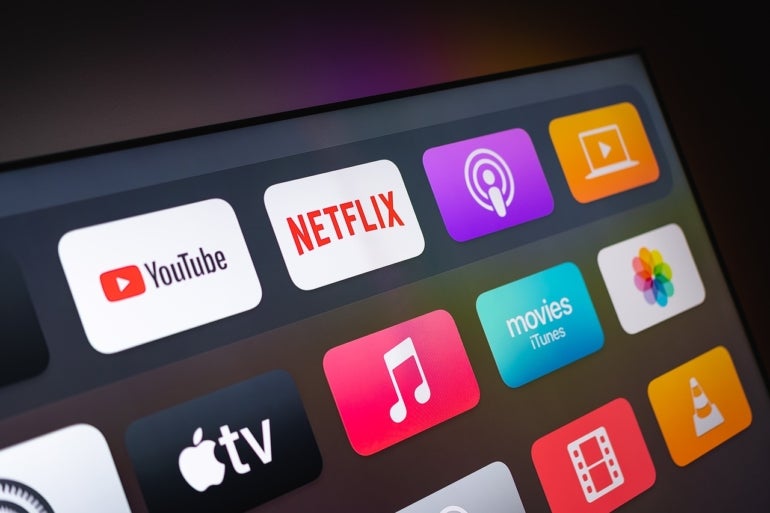[ad_1]
Telecom and EU representatives at MWC 2023 increased pressure on American Big Tech companies to help with future-proofing expenses.

Who foots the bill for a telecommunications network? In an ongoing attempt to answer the question, European Union telecommunications companies at Mobile World Congress 2023 pushed regulators to make U.S. tech giants — including Google — pay for some of the cost of maintaining the highest-traffic networks in the world.
SEE: Data governance checklist for your organization (TechRepublic Premium)
Jump to:
What do these EU telecommunications providers want?
Orange, Deutsche Telekom and BT are among the EU organizations that spoke out at MWC 2023, looking for changes from the American companies that make up the bulk of their traffic, CNBC reported.
In particular, telecoms want Google, Netflix, Meta, Apple, Amazon and Microsoft – which together generate nearly half of today’s internet traffic – to pitch in on maintenance for networks that deliver their content. These “fair share” fees would go toward keeping infrastructure running well and rolling out next-generation networks. Some fees would support physical infrastructure, such as new cables and antennas, as well as increased network speeds.
Several telecoms have suggested network fees as a solution; this would essentially be a “tax” to help with network maintenance. However, opposing U.S. tech firms say this would trickle down to have negative effects on consumers. BT also suggested to CNBC a “two-sided model” in which the content provider pays the network operator in roughly the same way consumers do.
For telecommunication providers, such a deal could help them keep up with an increasing demand for faster services that carry more data. They may now have a better chance of getting their voices heard in regard to seeking a “fair share” from hyperscalers.
European Commission weighs in
The European Commission opened a consultation into the issue in February, prompting much of the conversation at MWC 2023.
A big change this year was that Thierry Breton, head of internal markets for the European Commission, weighed in on the side of the telecoms. In order to fund proposed technologies like the metaverse and next-generation mobile networks, EU telecoms need to “find a financing model for the huge investments needed,” he said, according to CNBC.
Breton also cautioned against framing it as a debate just between telecom and content giants. Net neutrality is also a concern, as more financial ties and shared information between the two could lead to roadblocks to a free and open internet, such as throttling or preferential treatment given to certain kinds of content.
SEE: Dell partners with Red Hat as part of MWC 2023 announcement slate (TechRepublic)
What would these changes mean for Big Tech companies?
Leaders from streaming content providers, like Netflix co-CEO Greg Peters, argue that the telecom “tax” would strain already fraying budgets and make it more difficult to produce quality programming. Netflix subscriber numbers increased in Q4 2022 despite stagnating revenue growth. Some tech firms argue they’re already paying for subsea cables and server farms and should not have to pay for carriage as well.
Another consideration is net neutrality, as Breton mentioned. Could deals between telecoms and Big Tech mean those who pay more to support infrastructure might get better network access, undermining the net neutrality philosophy of an internet that gives equal priority to all services?
A possible compromise would be for network providers and content makers to coordinate on releasing content at staggered times. For example, streaming services could inform EU telecoms of their schedule for blockbuster content. This could reduce the load of network traffic overall but would require an extra level of coordination between content creators and network operators across time zones.
“The challenge in Europe is it’s not that clear cut because you have an imbalance,” Paolo Pescatore, tech, media and telecom analyst at PP Foresight, told CNBC. “The imbalance is not down to Big Tech, it’s not down to streamers, and it’s not down to telcos. It’s down largely to the old, out-of-date regulatory environment.”
Read next: 5G Open RAN gains momentum: Next steps and challenges (TechRepublic)
[ad_2]
Source link



